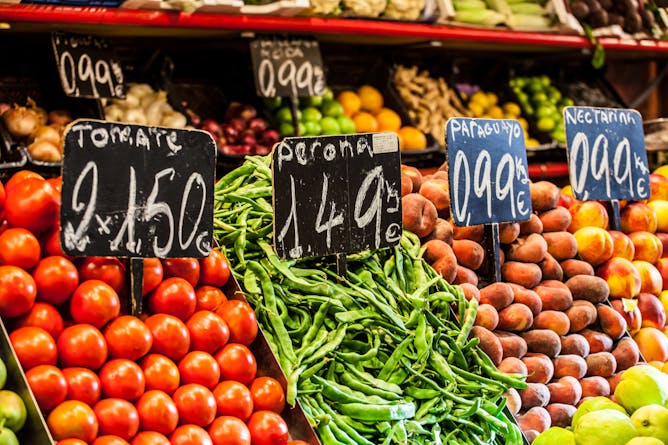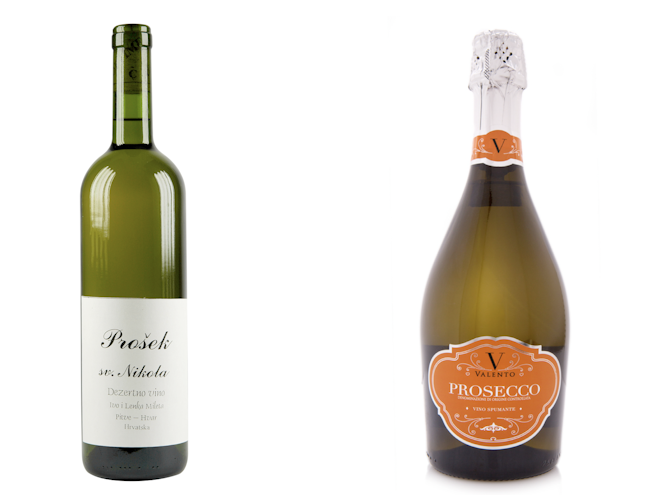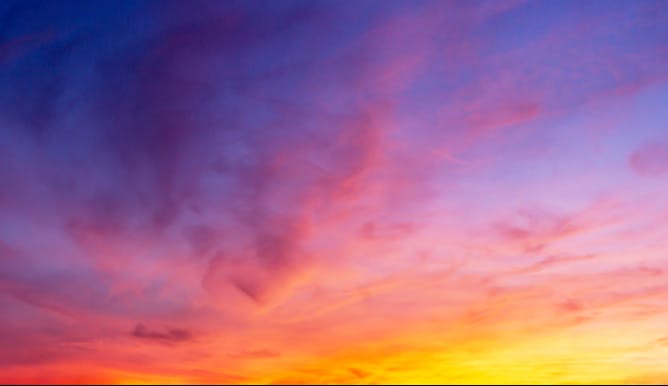|
|
|
|
The last time global food prices were this high, the world was reeling from the 1973 oil crisis. It might seem unsurprising that food prices, when adjusted for inflation, are reaching similar heights today, as Europe and other regions suffer an energy price crunch. But longer-term signals suggest something bigger is happening, according to Warwick University’s Alastair Smith – a senior teaching fellow in global sustainable development.
Global food prices have risen by one-third since September 2020, and two of the biggest drivers have been vegetable oil and sugar – crops which have suffered poor harvests due to unpredictable weather. While oil prices and pandemic-related labour shortages have made producing and distributing all food more expensive, Smith argues that we cannot ignore the role of climate change, which is affecting growing seasons in a way that’s already being reflected in food
price rises.
Elsewhere in food news, Italy and Croatia are at loggerheads over the right to name a white wine from the Dalmatian coast “prošek”. Who will the EU rule in favour of? And paint company Dulux have unveiled their colour of 2022: a shade of blue known as “bright skies”. But, as astronomy lecturer Daniel Brown points out, the sky has no such definitive shade.
|

|
Jack Marley
Environment + Energy Editor
|
|

Curioso.Photography/Shutterstock
Alastair Smith, University of Warwick
Extreme weather is already having an influence on global food prices.
|

Spot the difference.
JadroFoto and Urbanbuzz
Enrico Bonadio, City, University of London; Magali Contardi, Universidad de Alicante
Croatia is seeking EU protection for its ancient dessert wine prošek. Prosecco makers are having none of it, however.
|

Shutterstock/C_Atta
Daniel Brown, Nottingham Trent University
An astronomer’s guide to all the colours of the sky.
|
Politics + Society
|
-
Victoria Honeyman, University of Leeds
The image of a post-Brexit Britain with a strong international presence is being lost to the so-called special relationship.
-
Eva Lloyd, University of East London
Childcare is central to families being able to sustain working lives. But insufficient government funding and a complex web of for-profit companies means many are losing out
-
Christopher Massey, Teesside University
Keir Starmer has clashed with unions over leadership election rules – was it really worth it?
-
Helen Hall, Nottingham Trent University
The underlying behaviour in the former doctor’s near-poisoning of his partner is more common than might be assumed.
-
Ed Turner, Aston University
After beating the formerly biggest party to top the poll, the social democrats will enter complex coalition talks with potential partners, including the Greens and the liberal FDP.
-
Jack J. Barry, University of Florida; Ann Christiano, University of Florida; Annie Neimand, University of Florida
While surveys have shown a large share of unvaccinated workers threatening to quit over a mandate, the reality is few actually do.
|
|
Business + Economy
|
-
Temidayo Akenroye, Liverpool John Moores University
Three ways the government could address the lorry driver shortage with longer-term solutions.
|
|
Science + Technology
|
-
Mark Patrick Taylor, Macquarie University; Cynthia Faye Isley, Macquarie University; Kara Fry, Macquarie University; Max M Gillings, Macquarie University
Australians have been sending their dust to our DustSafe program for us to analyse. Here’s what we’ve learned so far — and what you can do to reduce your dust risk.
|
|
| |
Featured events
|

|
— Online event, Bangor, Gwynedd, LL57 2DG, United Kingdom of Great Britain and Northern Ireland — Bangor University
|

|
— The University of Manchester, Oxford Road, Manchester, Manchester, M139PL, United Kingdom of Great Britain and Northern Ireland — University of Manchester
|

|
— The University of Manchester, Oxford Road, Manchester, Manchester, M139PL, United Kingdom of Great Britain and Northern Ireland — University of Manchester
|

|
— Online, Zoom, Cardiff [Caerdydd GB-CRD], CF10 3BA, United Kingdom of Great Britain and Northern Ireland — Cardiff University
|
|
|
|
| |
| |
| |
| |
| |
|
|
|
|
|
|
|